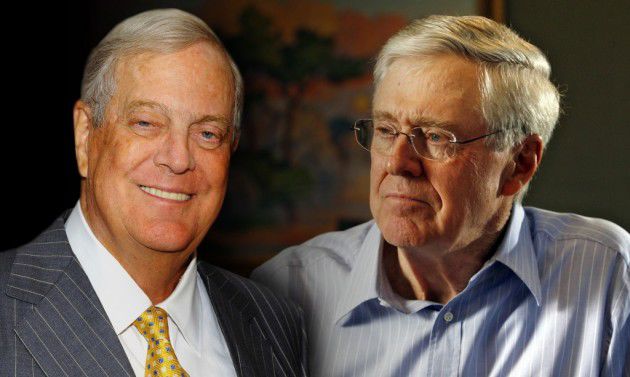How big money controls U.S. politics and why it matters
April 5, 2016
Our legislative branch is broken. Partisanship leaves both parties mainly concerned with hindering the other side of the aisle instead of working together to solve problems. But what is truly troubling, is that those who put the most money into Congress get the most out of it.
The ‘Citizens United’ Supreme Court ruling essentially guaranteed that corporations and private interests can pour money into congressional campaigns and own the individuals in the Senate and House of Representatives. When millions are spent lobbying congress and funding campaigns, the bills that big donors prefer will get passed and the bills that they don’t will die. Brad Thor, in his book “Full Dark,” made a great suggestion of how to illuminate this controversial reality—“…all members of Congress should be required to wear NASCAR uniforms.” This would surely help us understand who is really representing us. If this was in fact feasible, we would see who these legislatures are accountable to.
Since 2010, the oil and gas industry has spent over $800 million lobbying Congress. Companies like Koch Industries and Exxon Mobile contribute considerably to climate change, and if alternative energy starts to become a reality, their profits will be significantly diminished. So it only makes sense for these corporations to go right after the lawmakers. Despite growing acceptance and calls for addressing climate change, there is too much money at stake for our “representatives” to do anything about it.
Another instance of private interests controlling what our congress does is the National Rifle Association’s contribution of millions to campaigns and lobbyists in order to see their special interests reflected in legislation. While it is hard to prove that gun control legislation may bring down the United State’s 30,000 gun deaths per year, the NRA is making sure our institutions don’t even study it. Their lobbying efforts have ensured that no federal funding can be put towards the study of gun violence as a public health issue. The Center for Disease Control is strategically thwarted from studying gun violence directly because of NRA efforts. So the cost of losing NRA funding is much greater for politicians than that of finding out why gun violence has such a strong grip on our nation.
Additionally, Wall Street had spent billions lobbying for deregulation leading up to the 2008 financial crisis. Lack of oversight and regulation for financial institutions allowed big banks to virtually collapse the United States economy. So what happened when money flowed the other way? The United States spent billions bailing out Wall Street while the executives that sowed the greatest recession in decades cashed out millions of taxpayer dollars for their bonuses. For example, as a part of the 2008 bailout, JP Morgan Chase directly received $25 billion from the Federal Reserve. In the same year, their CEO took home almost $20 million.
We can always call and write to our senators and representatives as a part of our democracy, but I have lost faith that it has an impact. Without a checkbook and a donation for their next campaign, they don’t really see us. Moneyed interests have a stranglehold on our government and as long as this is true, we will be kept for implementing public policy that is best for everyone versus just the wealthy few. I wish that government was truly by the people and for the people.
I am not saying that Congress does nothing for our country and we are doomed to be at the mercy of big corporations. I am saying it is outrageous that writing checks to these men and women have such a large impact on our country as a whole. One bank, company or organization should not be able to alter the course of our nation in the way that they currently are. We have made a tragic error as a democracy in allowing money to control our destiny.










